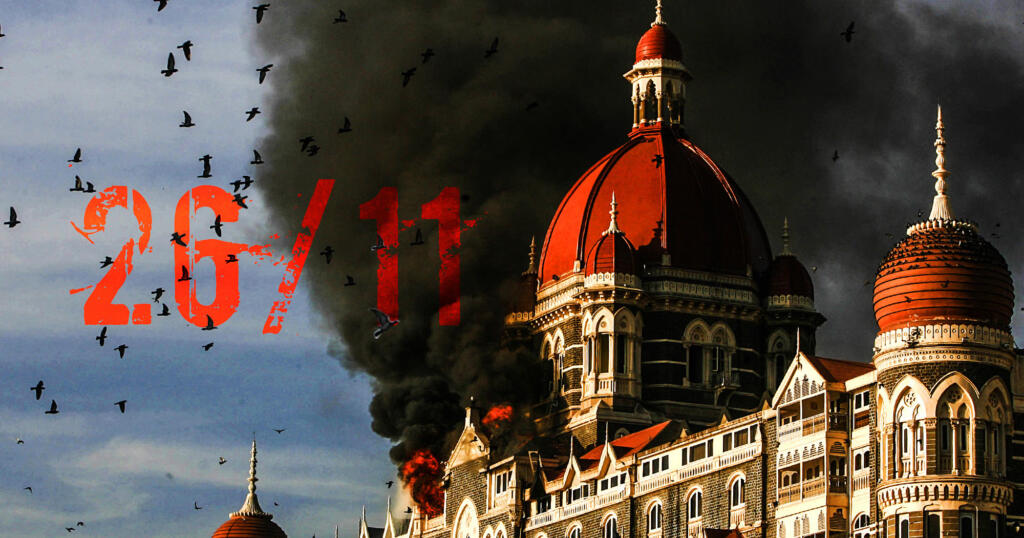Fifteen and a half years have passed since the harrowing 26/11 Mumbai attacks, a coordinated terrorist assault that left an indelible mark on India and the world. On November 26, 2008, ten terrorists from the Lashkar-e-Taiba (LeT) terror group infiltrated Mumbai, executing a four-day rampage that killed 166 people and injured 300. The chosen targets—Taj and Oberoi Hotels, Chhatrapati Shivaji Maharaj Terminus, Nariman House, and Leopold Cafe—were selected for maximum impact, frequented by locals and foreigners alike.
Immediate Aftermath and Reaction
In the wake of the attacks, India’s immediate reaction involved deploying National Security Guard (NSG) commandos to neutralize the terrorists and rescue hostages. This operation lasted nearly 60 hours, during which nine terrorists were killed, and the lone surviving terrorist, Mohammad Ajmal Amir Qasab, was captured. Qasab was later sentenced to death and executed in 2012. The attacks triggered nationwide outrage, leading to calls for swift justice and enhanced security measures.
Enhanced Counter-Terrorism Measures
Post-26/11, India strengthened its counter-terrorism framework. The government established the National Investigation Agency (NIA) to handle terror-related cases. Coastal and maritime security were fortified to prevent future infiltrations. Enhanced intelligence sharing and coordination among security agencies improved threat assessments and timely responses. These steps aimed to ensure better preparedness against potential future threats.
Diplomatic Pressure on Pakistan
India exerted diplomatic pressure on Pakistan, where the attackers were believed to have been trained. Internationally, India sought to highlight cross-border terrorism, pushing for global cooperation against terror networks. This diplomatic offensive aimed to isolate Pakistan and increase pressure for tangible actions against terrorist groups within its borders.
Argument for a Stronger Response
Despite these measures, some argue that India should have adopted a response akin to Israel’s retaliatory strikes against Hamas. Proponents of this view believe a strong military response would have served as a decisive deterrent against future terror attacks originating from Pakistan.
Deterrence Through Military Action
A robust retaliatory strike could have demonstrated India’s resolve to protect its citizens and sovereignty. It would have sent a clear message to terrorist organizations and their state sponsors that acts of terror would not go unpunished. Immediate and severe consequences might have curtailed the morale and operational capabilities of these groups.
Pressuring Pakistan
A forceful response could have pressured Pakistan to take concrete actions against terror groups operating within its borders. The threat of direct military confrontation might have compelled Pakistan to dismantle these networks more earnestly to avoid further escalation. This approach could have addressed the public’s demand for justice and retribution, reinforcing national unity and morale.
International Perception
Moreover, such a response could have reassured the international community of India’s commitment to combating terror. It might have garnered broader support for India’s stance against cross-border terrorism, potentially leading to greater international cooperation in addressing the threat.
Considerations Against Military Action
While the argument for a stronger military response has merit, several considerations led India to adopt a more measured approach. Firstly, the geopolitical context differs significantly from Israel’s situation with Hamas. India and Pakistan are both nuclear-armed states, and military escalation risks severe consequences, including potential nuclear conflict. The high stakes necessitated extreme caution.
Long-Term Strategy
India’s approach emphasized building a robust case against Pakistan in international forums. By highlighting cross-border terrorism, India aimed to isolate Pakistan diplomatically and push for global cooperation. This long-term strategy focused on sustainable counter-terrorism measures rather than immediate military action.
Conclusion
In hindsight, while a stronger military response might have acted as a powerful deterrent, the decision to avoid immediate action was rooted in concerns over nuclear escalation and international diplomacy. India’s response to 26/11, though measured, aimed to ensure long-term regional stability and enhance national security. Balancing internal reforms with external diplomatic pressure, India sought to address the multifaceted challenges posed by terrorism comprehensively.
The 26/11 attacks underscored the importance of a unified global front in combating terror. As the scars of that tragic event continue to linger, the lessons learned remain crucial for shaping effective counter-terrorism strategies.
ALSO READ: Only Fragile Governance Can Lead A Country Towards Terrorism, Says PM Modi
